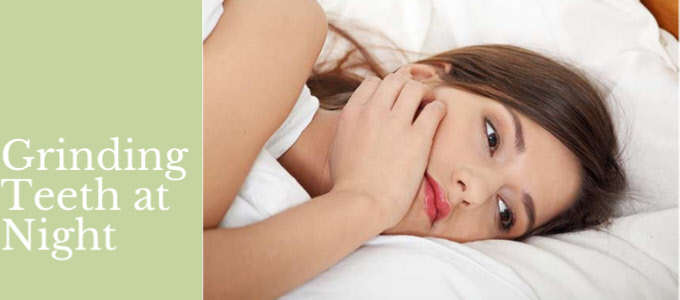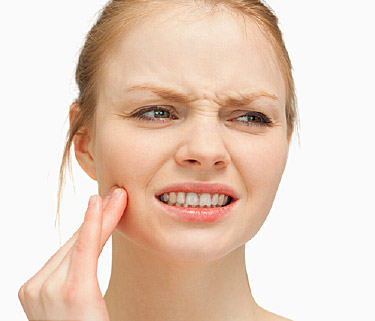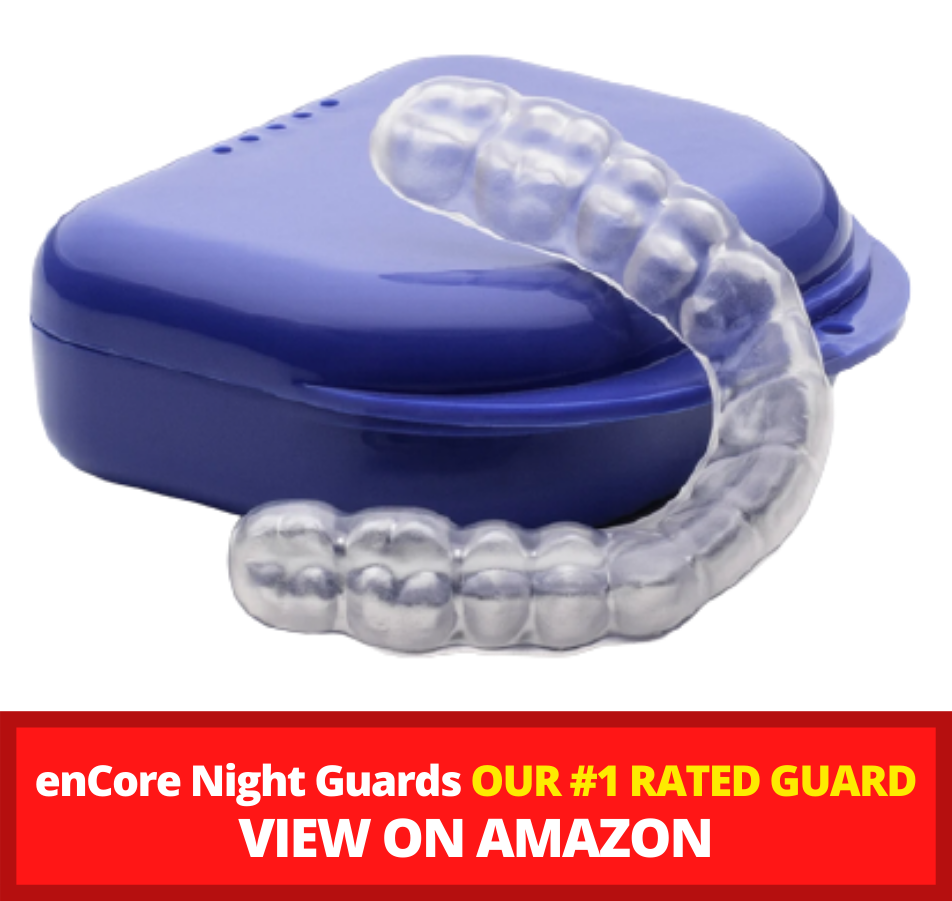Table of Contents

Teeth grinding or bruxism is a common condition in children but can affect people at any age. If your partner complains of a sound of loud gnashing at night, you could be grinding your teeth. And if left unchecked, you’ll find yourself waking up with a sore jaw and headaches.
Why Does Sleep Bruxism Happen?
Teeth grinding is often caused by missing or crooked teeth. It’s also associated with stress and anxiety. Some of the major stressors in life can include money, family, relationship, friends, etc. Besides that, the condition can be triggered by mood disorders, epilepsy, or cerebral palsy.
Teeth grinding can also be caused by reflux or digestion issues. If someone has heartburn or indigestion, the acid can reach the oral or mouth cavity. From a medical standpoint, the lack of lubrication can trigger sleep bruxism. Keep in mind some beverages that contain caffeine can worsen the condition.
Genetic predisposition can also play a key role. In a recent survey, the researchers found that 50% of all children who experience teeth grinding had a parent who suffered from the same condition (1).
How Common is Sleep Bruxism
While it’s hard to come with the exact number, it’s estimated that 6-50% of children and young adults experience teeth grinding. It becomes less common with age – only 3% of adults grind their teeth while asleep.
Symptoms of Sleep Bruxism
Bruxism is associated with involuntarily grinding or clenching of teeth during sleep. The frequency is often inconsistent – from a few episodes to 100. Unlike rhythmic masticatory muscle activities, bruxism occurs with greater force.
Those who grind their teeth at night may not be cognizant of the symptoms unless you’re told by a partner and a family member.
The two symptoms of teeth grinding are neck and jaw pain.

Consequences of Teeth Grinding
Long-term teeth grinding can cause significant harm to the teeth. Also, the teeth can become eroded or painful. If you have implants, fillings, or dental crowns, they can become damaged. In some cases, teeth grinding can lead to loss of teeth. Teeth grinding is also associated with pain of the joint that connects to the lower jaw.
The severity of the symptoms will depend on the alignment of a person’s teeth. It’s also believed that the noise that comes from teeth grinding can be bothersome to your partner.
What Can I do to Stop Grinding my Teeth?
If you have sleep bruxism, there are many ways you can combat the problem.
Changing your Diet and Eating Habits
Since teeth grinding is associated with indigestion, you may want to eliminate things with high sugar content like chocolate, alcohol, tea, coffee, and energy drinks. Also, you may want to get rid of foods that can cause GERD. And make sure you give yourself enough time to eat and digest food.
Improve Sleep Hygiene
There are many things you can do to improve the quality of sleep. For instance, you should keep a regular sleep-wake cycle. Create a regular sleep cycle that ensures you sleep and wake up at the same time. As you do this, be sure to maintain the recommended 7-8 hours of sleep. Another measure you can take is to limit the screen time before you go to bed. You can use the time to pick a nightly routine like knitting or listening to audiobooks. If you still can’t catch some sleep, herbal or non-caffeinated tea can help to warm your mouth.
Use a Mouthguard
A mouthguard is a dental device that can address the damage caused by bruxism. For instance, a dental splint can act as a barrier against any effect of grinding. They are designed by dentists to stop teeth grinding. And depending on a specific case, a mouthguard can cover a specific section or a wider area of your teeth.
Other types of splints can include mandibular advancement devices. This device also helps to reduce snoring. And because it positions the lower jaw forward, it keeps the airway open and limits the extent of teeth grinding. Some MADS are available over-the-counter and can be adjusted to suit your needs.
Reduce Stress
As mentioned above, stress can contribute to teeth grinding. But with a few relaxation methods and getting adequate sleep, you can combat the problem more healthily. Another way of keeping stress at bay is taking a bubble bath and practicing mindful exercises. Your goal should be to allow your body to get rid of any lingering tension.
Massage
Some neck massages can help to relieve tension and ease the pain related to bruxism. A therapist will use different techniques to relax the jaws and nearby muscles.
Medications
In severe cases, you can use medications to treat teeth grinding at night. Your doctor may consider Botox injection to reduce the activity of the facial muscles. Be sure to understand the benefits and risks of this kind of treatment.
Mouth Exercises to Cope with Teeth Grinding
Did you know there is a range of exercises you can do to improve motion in the jaw? The most effective exercise involves crossing the lips gently to prevent the top and bottom teeth from touching each other. After that, press your tongue against the roof of the mouth and maintain this position for a few minutes.
Another exercise that can help to combat the problem is putting your hands where the jaw connects and then slowly open your mouth. You should maintain this position for 5 minutes. For the best results, you should perform the exercise at least three times a day.
Home Care Tips to Cope with Bruxism
There are a few tips you can follow to prevent irritation of the neck and jaw like:
- Avoid chewing gums
- Stay away from hard foods like popcorns, nuts, and candies
- Be cautious with sticky foods like peanut butter
- Use an ice pack or hot compress to deal with jaw pain
- Adjust your pillow to ensure you have the right neck and head support
- Train yourself not to grind your teeth. If you notice that clench, you should position the tongue between the teeth.
Conclusion
While some remedies can help you address the problem, you should consult your doctor to give the best solution for ending bruxism. Also, you should be on the lookout whether your child has this condition. Older children may require a nightguard or crown to keep teeth grinding at bay.


